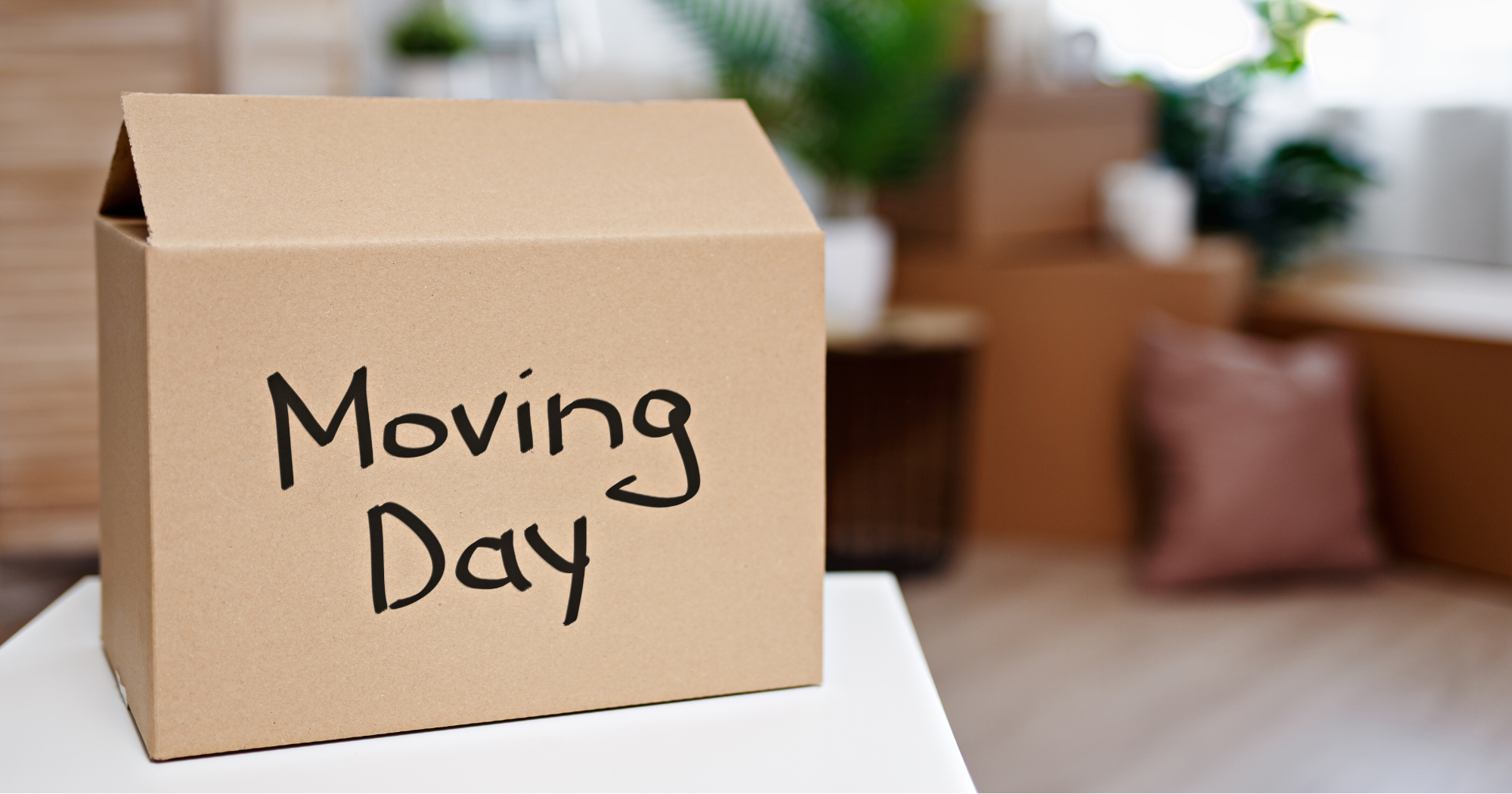How to Conquer Moving Day Like a Pro

Are you buying a new home or relocating to a new area? Do you feel the stress and overwhelm already creeping in, just thinking about the process of moving? You aren’t alone! In fact, moving is probably one of the most dreaded tasks of adulthood, and rightfully so.
There is a lot of planning and preparation that goes into a successful move, not to mention the tedious process of packing up your entire life into boxes. We get it! As experienced realtors and investors, we know a thing or two about moving and how to keep the stress and overwhelm to a minimum. That’s why we’ve put together this ultimate timetable breakdown so you can stay in charge, keep things organized, and avoid the stress that typically accompanies a big move.

6 Weeks Prior to Moving Day
Six weeks out may seem like a long time, but once you get started you’ll soon find that the days will fly by. It’s best to start taking care of things as soon as you can. Here’s what we suggest doing 6 weeks before your move.
- Take inventory of items to move. Create a spreadsheet if you’re tech-savvy, and list out everything that will be moved- this will help you gauge the size of the move.
- Declutter. This is a great time to shed items that haven't been used in years. Donate them to your favorite charity or have a yard sale.
- Determine how you will move. Based on your final inventory (after decluttering), determine if you need professional movers or if this will be a do-it-yourself move.
- Get moving quotes. If you decide to hire professional movers, start calling around to get quotes so you can determine costs.
- Create a Moving Day Supply Kit. Start collecting items that you’ll need on moving day, such as boxes, packing tape, box cutters, scissors, bubble wrap, and permanent markers. This will prevent you from having to stop in the middle of packing or moving day, to run to the store for supplies. ***Pro Tip - To cut down on toxic waste, use towels, bedding, and even clothing in place of bubble wrap or packing peanuts.
- Inquire about the school registration process. If your move requires your children to change schools, this is a great time to reach out to the new school for their registration process.
- Contact insurance companies. For life, health, fire, and auto insurances be proactive by contacting your insurance provider(s) to update, cancel, or transfer your services.
- Inquire about employer benefits. If your move is work-related, pay your HR office a visit and find out if there are any available benefits or funding to assist your move.

4 Weeks Prior to Moving Day
At four weeks out, stay organized and in control by requesting records, returning rented items, and moving valuables to a safe location. Here are actionable steps to begin taking at the four-week mark.
- Transition utilities. Contact your utility providers and inform them of your upcoming move. Schedule turnoff or transfer dates, and request deposits or refunds if applicable. If you’ll need service from a new provider, go ahead and contact them to schedule your service turn-on date, (this should be at least a day or two prior to moving day).
- Obtain records. Request your medical records, or the transfer of records, if you already have a new medical provider selected. The same goes for your pets’ records- don’t forget to reach out to your veterinarian.
- Take a food inventory. Create an itemized list of the remaining food in your refrigerator and pantry. For your final four weeks, create a meal plan with the goal to use up as many of your food items as possible.
- Prepare small engines for the move. To reduce fire hazards, extract gas and oil from small engines (lawn mowers, weed eaters, chainsaws, etc..)
- Move valuables. Transition valuables like jewelry and important documents (deeds and titles) to a safety deposit box or other safe location to prevent them from getting lost or stolen on moving day.
- Collect and return. Now is the perfect time to collect any items that you may have lent out to your neighbors. Also, don’t forget to return any items that you borrowed or rented out.

1-2 Weeks Prior to Moving Day
With moving day around the corner, you’re on the home stretch! The last two weeks before your move can be daunting, but having a plan like this will make all the difference!
- Schedule sitters. Make plans for children and pets to spend the day at the sitters, if possible.
- Change your address. Visit your local post office or fill out a change of address form online. You’ll also want to notify your change of address with your bank(s).
- Tune up vehicles. If you have vehicles that will be driven long distances during the move, be sure to have them serviced in advance, to avoid any complications on moving day.
- Cancel services. Be sure to cancel any ongoing services like newspaper delivery, landscaping, cleaning, or trash/recycling.
- Start packing. To make unpacking easier, label boxes by room with a brief description of their content. Color-coded packing tape is also a great way to organize boxes.
- Save the essentials. Set aside items that you will need on moving day, to ensure they don’t get packed and loaded on the moving truck.
- Pack an ‘open first’ box. This box should include a clean change of clothing, bedding, and toiletries for everyone. In the event that you don’t want to unpack everything at the end of the day, having this box will provide you with all that you need.
- Pre-clean your new bathroom. If possible, make a trip to your new home and pre-clean the bathroom. After a long day of moving, you’ll be glad to have a clean shower to rinse off in.
- Prepare a floor plan. This step will make it easy on moving day by illustrating where furniture and appliances will go.

Moving Day!
You made it! Thanks to all of your planning and preparation, the bulk of the hard work is behind you. Follow these final steps to complete your stress-free move.
- Confirm with your movers. If you’ve hired movers, check in with them to ensure that they have the correct addresses, along with your contact information and a backup contact.
- Keep your open-first box with you. Rather than loading it on the moving truck, keep it with you to ensure you have essentials for your first night.
- Do a final review. Once you have an empty house, do one final review to ensure nothing is left behind. Be sure to check all rooms including your attic, basement, closets, and sheds.
- Vacate. Finally, it’s time to go! Make sure windows and doors are locked and utilities are turned off. For extra precaution, take pictures of each room as proof of how you left the property. Notify your realtor that you have left the premises.
Schedule a Free Consultation with Vergara Realty Group
Lastly, if you’re looking to buy or sell a home in the Dallas Fort Worth Area, call Vergara Realty Group to set up a free consultation.

Categories
Recent Posts









